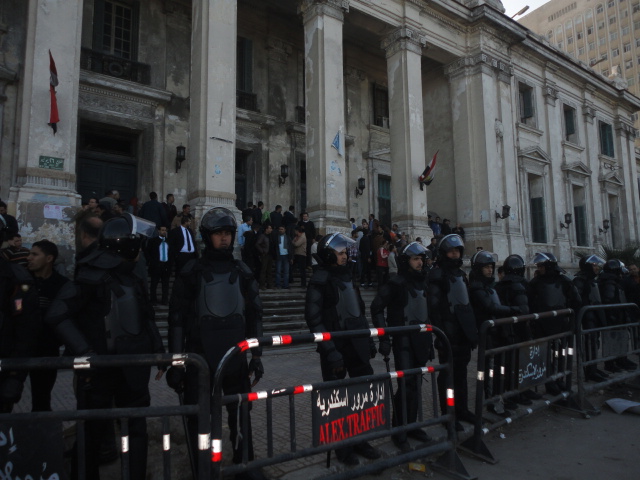
(AFP PHOTO / ZEIN AL-RIFAI)
AFP- Syria’s exiled opposition began debating Saturday whether to join international peace talks next week after Damascus offered concessions including a ceasefire plan for the battered city of Aleppo.
But the National Coalition remains riven by internal divisions, making its attendance at the key talks in Switzerland far from certain despite intense pressure from the West and Arab states.
And US Secretary of State John Kerry bluntly dismissed the Damascus regime’s proposals as a diversionary ploy ahead of the so-called Geneva II conference, saying “nobody is going to be fooled”.
The talks opening Wednesday are aimed at setting up a transitional government to find a way out of the brutal conflict that has killed 130,000 people and made millions homeless since March 2011.
The Coalition’s general assembly began meeting at a hotel in a far suburb of Istanbul on Saturday afternoon after haggling over various issues prevented the talks beginning as planned on Friday.
Many members are appalled at the idea of sitting down at the same table with representatives of the hated regime they have been trying to unseat for almost three years.
In a surprise move in Moscow on Friday, Syria’s foreign minister Walid Muallem presented his Russian counterpart Sergei Lavrov with a security plan aimed at halting “all military actions” in the devastated northern city of Aleppo.
Muallem also said the regime was willing to swap prisoners with the rebels in the first such mass exchange since the conflict erupted, while Lavrov said Damascus was ready to take “a series of humanitarian steps” to improve the delivery of aid.
Syria, Muallem said, would “make every effort to ensure Geneva II is a success and meets the aspirations of the Syrian people and the direct orders of President Bashar Al-Assad”.
But Kerry warned the regime it could not divert the peace talks away from the aim of installing a new government.
He accused Assad of funding and even ceding territory to extremists in order to fuel fears about militant groups.
“They can bluster, they can protest, they can put out distortions, the bottom line is we are going to Geneva to implement Geneva I, and if Assad doesn’t do that he will invite greater response,” he said.
Kerry also sought to allay opposition fears that the negotiations would somehow legitimise Assad’s regime and leave him in power, saying: “It’s not going to happen.”
Media reports have suggested that the United States and Britain are threatening to withdraw support from the opposition if it fails to send a delegation.
But factions within the Coalition are wary of being drawn into a process they fear could result in Assad clinging to power.
“The goal of any political solution must be to install a government of transition that Assad will play no part in,” said Coalition spokesman Khaled Saleh.
The Coalition is beset by rivalries between groups backed by either Qatar or Saudi Arabia, while on the ground, more mainstream Islamist factions are battling Al-Qaeda-linked jihadists.
Jihadists on Friday withdrew from Saraqeb, their last bastion in the Syrian province of Idlib, five days into a major battle against local rebels, a monitor said.
In the region of Aleppo, rebels also made advances except in Jarabulos on the border with Turkey, which the Islamic State of Iraq and the Levant (ISIL) seized, the Syrian Observatory for Human Rights said.
The fighting also spilled across the Lebanese border, with eight people, including five children, killed when shells fired from Syria rained down on the border town of Arsal, officials said.
After news of the deaths broke, violence erupted in the city of Tripoli in northern Lebanon, a frequent scene of Syria-related clashes and killings.
UN refugee chief Antonio Guterres, meanwhile, pleaded for the world to ease the massive burden on countries sheltering the millions of refugees and to open their borders to those fleeting the war.
He was speaking at a meeting in Turkey of regional countries on the refugee crisis after the United Nations launched a massive $6.5bn appeal for aid.
“For me it is unacceptable to see Syrian refugees drowning, dying in the Mediterranean or pushed back at some borders,” he said.


